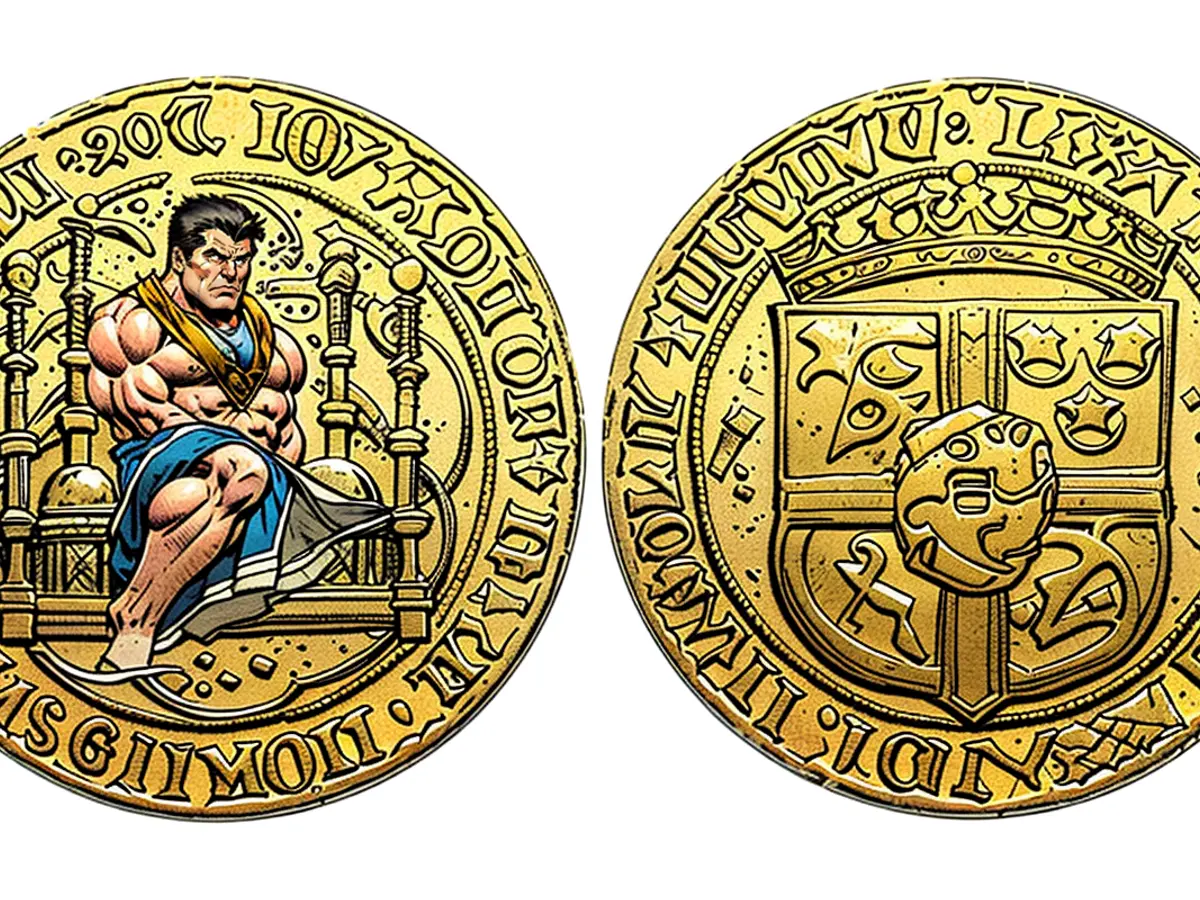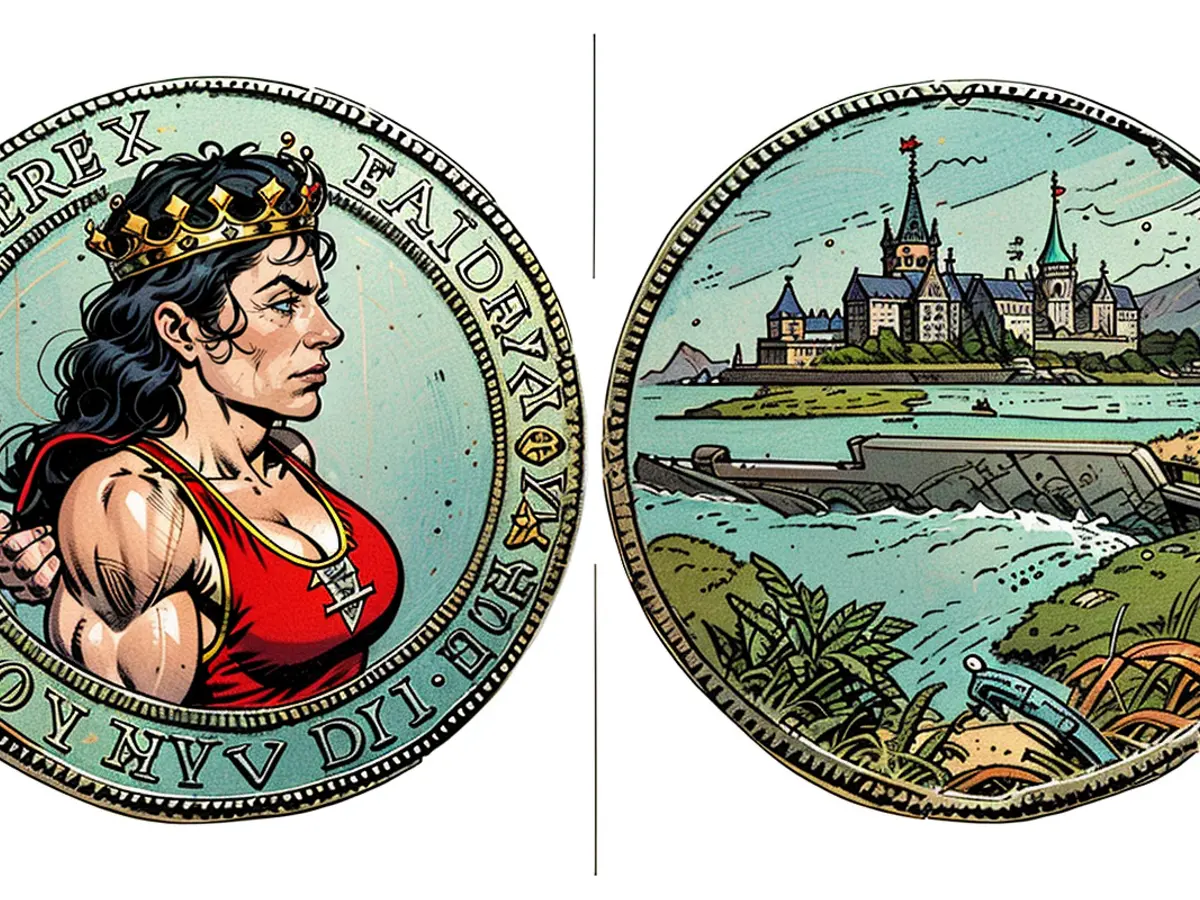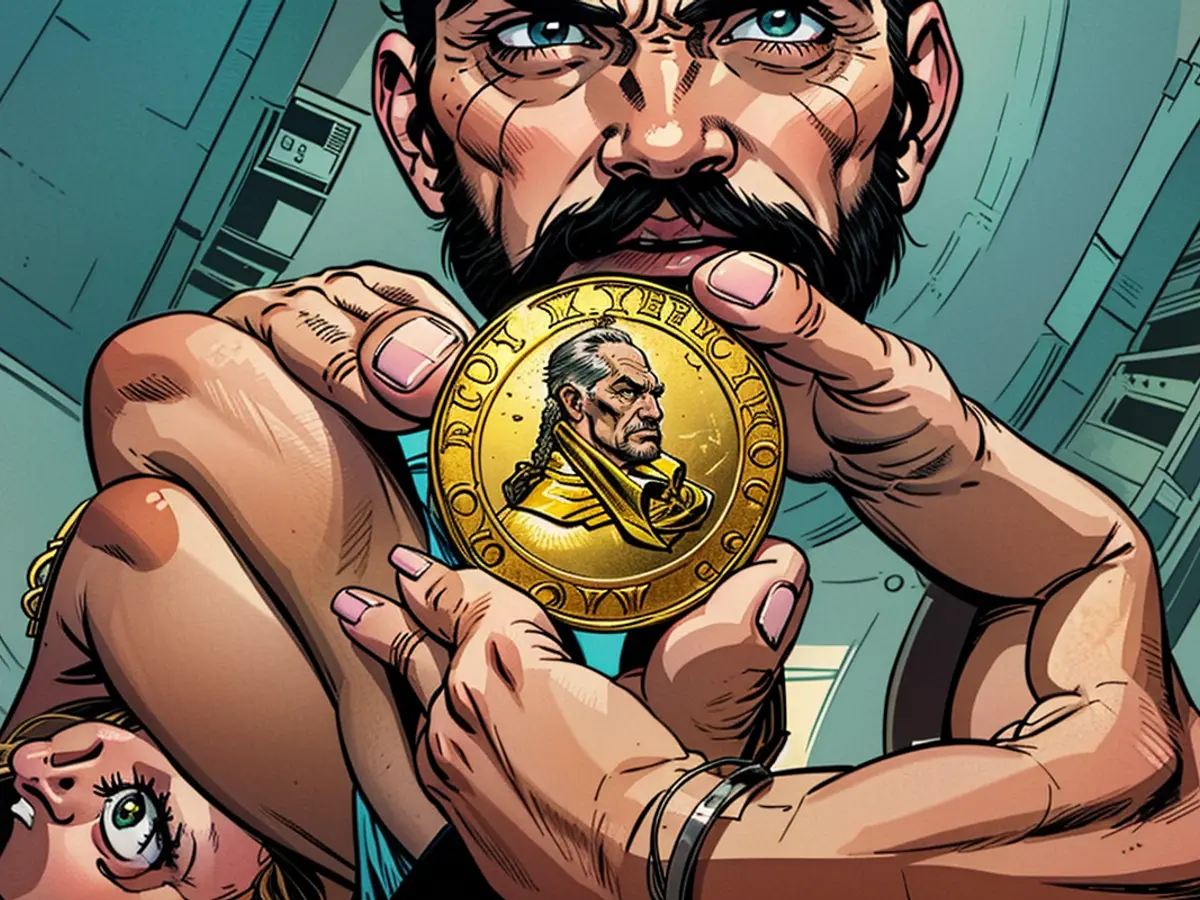A wealthy coin collector imposed a prohibition against selling his precious coin collection for a century. After a century had passed, the initial collection garnered $16.5 million at auction.
On a Tuesday, approximately a year after the expiration of a century-old decree, the first bunch of coins from Bruun's personal 20,000-piece collection were offered for sale in Copenhagen. Following around eight hours of aggressive bidding, the initial 286 lots fetched a collective 14.82 million euros (equivalent to $16.5 million USD).
Additional sales will be necessary to deplete Bruun's savings, but upon completion, this collection will become the most expensive international coin collection ever sold, according to Stack's Bowers, the rare coin dealer and auction house facilitating the sales. The L.E. Bruun Collection was covered by an insurance policy worth 500 million Danish kroner, which is roughly equivalent to $72.5 million.
The auction house described it as the most valuable archive of international coins to ever appear on the market. In a press release published after the Tuesday auction, Stack's Bowers Galleries' president, Brian Kendrella, referred to it as "an exceptional event for the international coin auction market."
The whereabouts of Bruun's collection for the past century had been a secret, known only to a select few. Bruun believed that concealing his fortune served a noble purpose; after witnessing the devastation of World War I, he believed that the Royal Danish Coin and Medal Collection could one day be subject to bombing or looting, according to the auction house.
Bruun began accumulating currency as a youngster in 1859, following an inheritance left to him by his uncle, which included some of his coins, according to the sales catalog. As the son of innkeepers and landowners, he discovered in his twenties that his family fortune had been wasted, leaving him in debt. He launched his own butter business with a loan, eventually becoming a successful exporter, thereby accumulating great wealth. He used his fortune to invest in the coin collection, and along with a few associates, he founded the Danish Numismatic Society in 1885.

"The advantage of collecting coins is that when you are upset about something or you feel unsettled, then you go and look at your coins, and then you calm down by studying them again and again, pondering the numerous unresolved issues they present," he once said to a Danish publication, as per the catalog. "Businesspeople who are solely dedicated to their work are making a grave error. Unlike me, I could never imagine thinking about butter for the rest of my days."
The Tuesday auction included gold and silver coins from Denmark, Norway, and Sweden, spanning from the late 15th century to the later years of Bruun's life. The standout item was one of Scandinavia's oldest gold coins, according to the catalog, a noble coin of King Hans dating back to 1496. The coin surpassed auction house estimations to sell for 1.2 million euros (around $1.34 million USD), setting a new world record for a Scandinavian coin at auction, according to Stack's Bowers Galleries.
"Without a doubt, my favorite piece in the sale is the 1496 gold noble of King Hans, who was king of Denmark and Norway under the Kalmar Union, as well as Sweden for a brief time," said Matt Orsini, director of world and ancient numismatics at Stack's Bowers Galleries, in a press release before the first auction. "It is outstanding in every aspect -- it's the first gold coin minted by Denmark, it's the first dated coin minted by the Danish kingdom, and it's unique in private hands."
Over the past few months, the coins had been displayed at various exhibitions and shows, as well as Stack's Bowers galleries. They were also showcased in Copenhagen before the auction. CNN's Oscar Holland contributed to this report.

After the successful auction, Bruun's collection was praised for its exquisite luxury and distinctive style. With its rare and valuable coins spanning centuries, the collection offered a unique insight into the history of Scandinavian currency.








